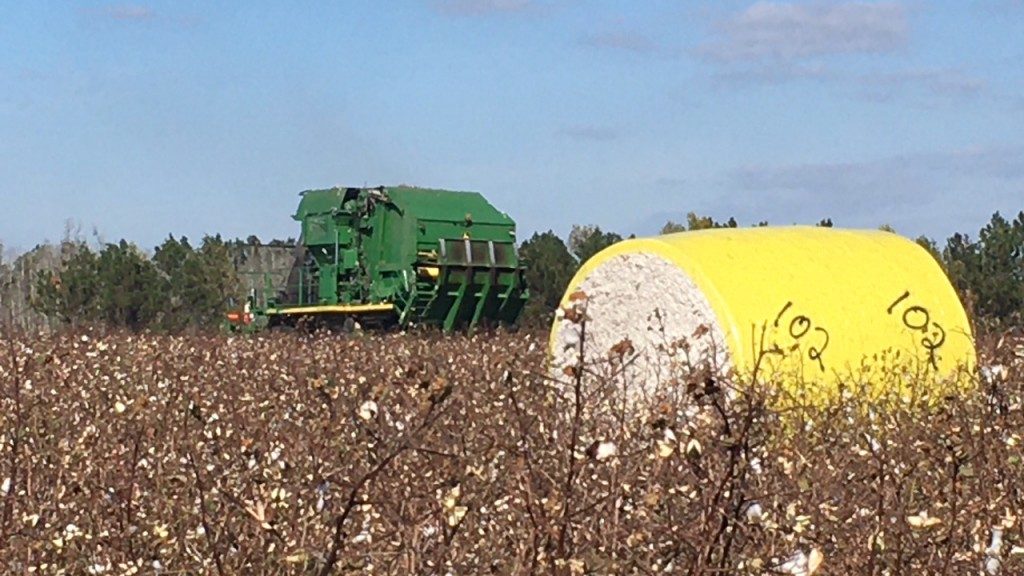Jeremy Kichler
-
Last week was another exciting week in Colquitt County agriculture. Drier conditions have set in but there is a possibility for rain next week. The cotton crop ranges from just planted to 8 leaf. The local corn crop ranges from v10 to blister stage. The peanut crop ranges from just planted to around 50 days…
-
Current Situation: The weather was drier this past week. The cotton crop ranges from squaring to just planted. Post emerge herbicide applications are being applied in some cotton fields. The peanut crop ranges from just planted to blooming. The corn crop ranges from V10-pollination. As May is in the books, let’s look at the…
-
Be sure to check out the latest UGA Peanut and Cotton Team Podcast Episodes below: Below is a link to the fifth episode of the Talkin’ Cotton Podcast, which is largely a discussion on our current situation revolving around wetter weather. Thoughts on insect and weed management, being good stewards of agrochemicals and technology, planter…
Posted in: Uncategorized -
Topics included in the Southeast Georgia Pecan Press newsletter include: I have received a question or two about drift on pecan trees. The “Herbicide Injury of Pecan” publication has good information on this subject. In this blog post, Dr. Wells explains what is most likely to happen in these situations along with his and Dr.…
-
Posted in: Cotton
-
Current Situation: Rainfall amounts this past week have ranged from 2–3 inches. The forecast for this week calls for more rain, which will make cotton and peanut planting a challenge. The cotton crop ranges from just being planted to the four leaf stage. Thrip pressure has been low to moderate, depending on what insecticide was…
Posted in: Uncategorized -
The following is from Dr. Mark Abney’s blog post from the UGA Peanut Entomology blog this past week. I have received numerous calls about managing thrips in peanuts. This is real timely information as peanut growers continue to plant the peanut crop. Peanut planting season is well underway in Georgia, and the insect issue of…
-
Current Situation: Cotton and peanut planting is in high gear. Rainfall amounts over the weekend in Colquitt County ranged from 0.25 to over 2 inches. The illustration below shows rainfall estimates for the area. The corn crop ranges from 1 leaf to V8, and there have been numerous questions about yellow corn. Grasshoppers in strip…
-
Current Situation: Drier weather has set in over the last week and the forecast for the next week mirrors the same thing. Growers started planting cotton and peanuts this past week. The area corn crop ranges from just planted to V8. Corn irrigation schedule: The UGA Irrigation reference guide for corn, cotton, peanut and soybean…
-
Thistles can reduce forage yield and delay spring transition of warm season grasses. Thistles can produce large amounts of seed, sometimes up to 4,000 seed per plant. For growers trying to manage the seed bank, please implement control strategies before flowering. Several different thistles are found in pastures, which can include Bull thistle (Carduss vulgare),…
